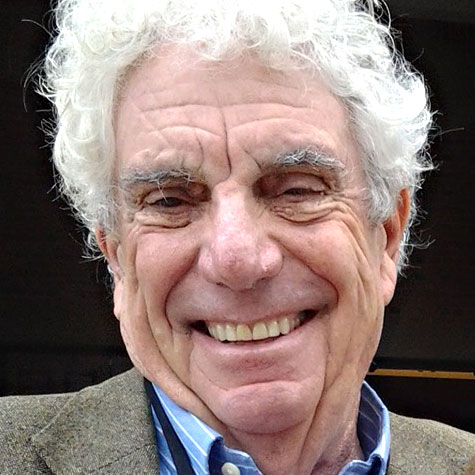There is a preconceived notion about the Los Angeles Jewish community being affluent, increasingly conservative and preoccupied with Israel to the exclusion of other issues.
There is some truth in this, as is the case with all preconceived notions and stereotypes. There is also some untruth.
Before the 2004 election, for example, we pundits wrote much about an anticipated Jewish shift to the Republican Party. But on Election Day, Sen. John Kerry, the Democratic nominee, received 78 percent of the Jewish vote, according to a post-election study conducted for the Solomon Project by five established political pollsters.
“This number has been remarkably stable over the last three presidential elections,” they said in their report.
And there’s poverty among us. In November 2004, Jewish Journal senior writer Mark Ballon reported on a Jewish Federation of Greater Los Angeles study that found one in five local Jews earn less than $25,000 annually. In greater Fairfax, with its large senior and immigrant population, the figure was one in three.
Aiming to puncture more stereotypes, I visited the single-room office of the Jewish Labor Committee and talked to the western executive director, Cookie Lommel, an African American woman, a journalist and the writer of books on famous people for young adults. She is, to her knowledge, the first African American woman to head a Jewish organization.
“Stereotypes are hard to kill,” she said. “That’s why I’m here.”
The liberal Jewish Labor Committee was founded in 1934 on the Lower East Side of New York by unionized Jewish garment workers organizing a movement against Hitler’s assault on independent trade unions. The Los Angeles operation began eight months later. Soon their efforts expanded to try to rescue German and East European Jewry. Today, the committee works closely with unions representing teachers and other public employees, supermarket workers, janitors and other elements of the labor movement in Los Angeles.
“We are the link between the organized Jewish community and the labor movement,” Lommel said.
In 1991, as a journalist, she became interested in the airlift of Ethiopian Jews to Israel. She wrote about it for black publications.
Afterward, she started Operation Unity, bringing African American and Latino high school students to Israel, where they worked on a kibbutz. Eventually, that led her to the small Jewish Labor Committee office on the second floor of the Institute of Jewish Education building, a few blocks east of the Beverly Center. Shifting from computer to desk to work table, answering the phone and my questions, Lommel was commander of her one-woman show. Her door was open, and the sounds of a preschool in the yard below provided the background to our chat.
I had called Lommel because it had occurred to me that the news media was not telling the entire Jewish story. We see Jewish Hollywood, Jewish business tycoons and Jewish political contributors, all of them at the top of the economic ladder.
Lommel knows a blue-collar side to Jewish life.
“There is a high percentage of Jews in the membership and leadership of unions,” she said.
Not all of Hollywood’s Jews are studio execs. Plenty are members of IATSE, the union representing technicians, crafts people, artists and stagehands.
Another place where you find large numbers of Jewish members is in the fast-growing unions representing government employees. I can’t think of a grittier, more blue-collar job than being a Los Angeles County social worker, driving through the poorest neighborhoods, checking up on dysfunctional homes, always worried that one wrong decision could leave a kid in the hands of a brutal parent.
Another tough job is being a school teacher. Jews are also supermarket checkers, as Lommel discovered while on the picket line during the 2003-2004 market strike. She told me about a striking checker encountering a longtime Jewish customer, who was shocked at seeing a nice Jewish woman carrying a picket sign. The customer’s surprise reflects how much of the Jewish community accepts stereotypes about itself.
Accepting these stereotypes takes the Jewish community out of the game on important issues vital to poor, working class and middle class Jews.
Certainly Israel is of great importance. The Jewish Labor Council was quick to join other Jewish organizations in protest when the United Teachers of Los Angeles’ (UTLA) 25-member Human Rights Committee planned a meeting at UTLA headquarters to discuss economic sanctions against Israel. The union, which has a total membership of 48,000, decided to deny the use of its headquarters for the event.
But there are issues besides Israel, including one of tremendous importance: the public schools. The people I’m writing about — the teachers, the social workers, the movie industry artists and technicians who don’t work in slow months — can’t afford private schools. They are entitled to send their children to good public schools. It is their right, just as it is the right of every American.
The influential, high-profile elements of the Jewish community are missing in action on this issue. To them, the public schools are a Latino thing or an African American thing. Actually, public education has always been a Jewish thing. And, considering what our community is really like, it still is.
Until leaving the Los Angeles Times in 2001, Bill Boyarsky worked as a political correspondent, a Metro columnist for nine years and as city editor for three years. He can be reached at bw.boyarsky@verizon.net.























 More news and opinions than at a Shabbat dinner, right in your inbox.
More news and opinions than at a Shabbat dinner, right in your inbox.